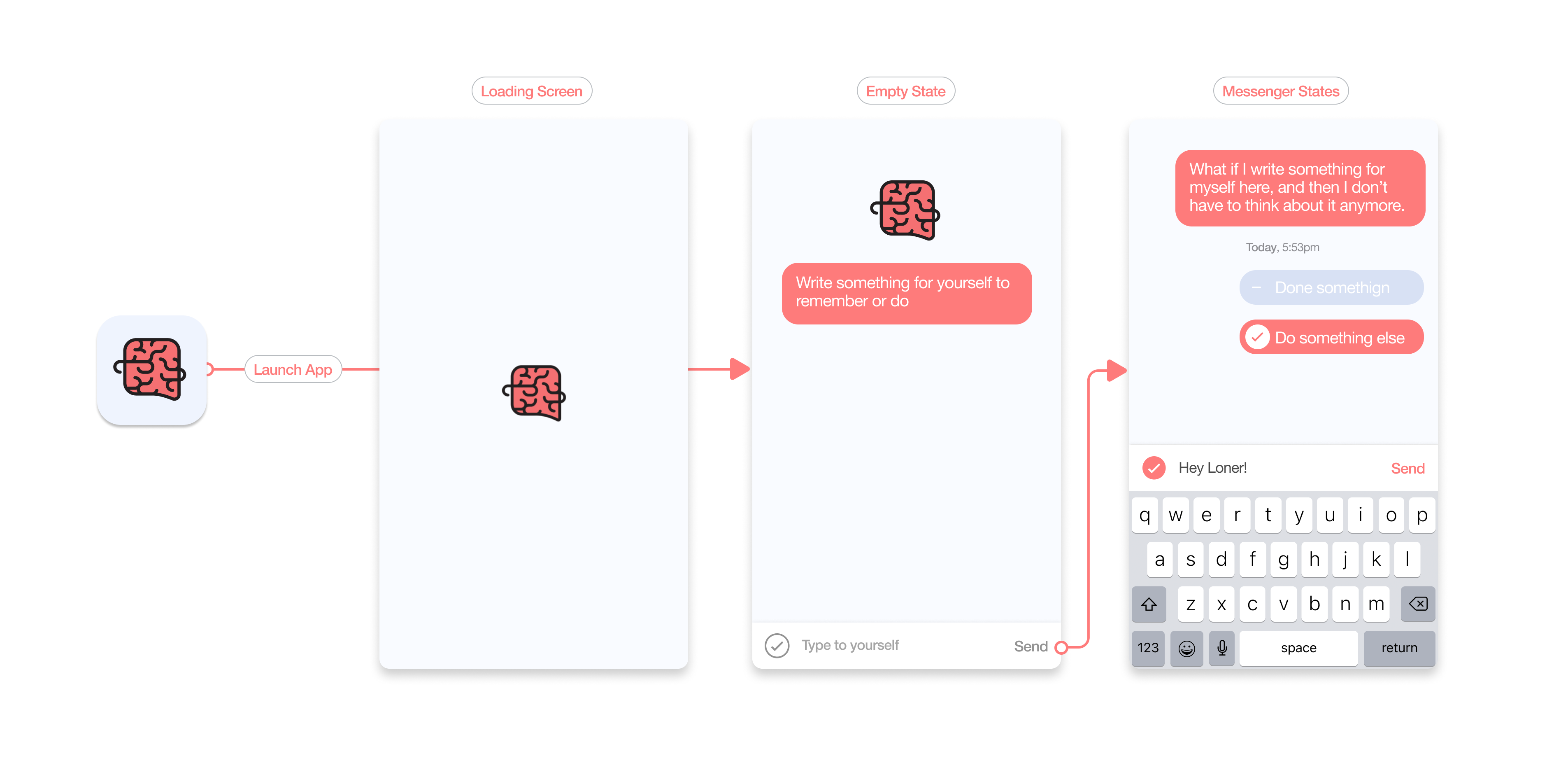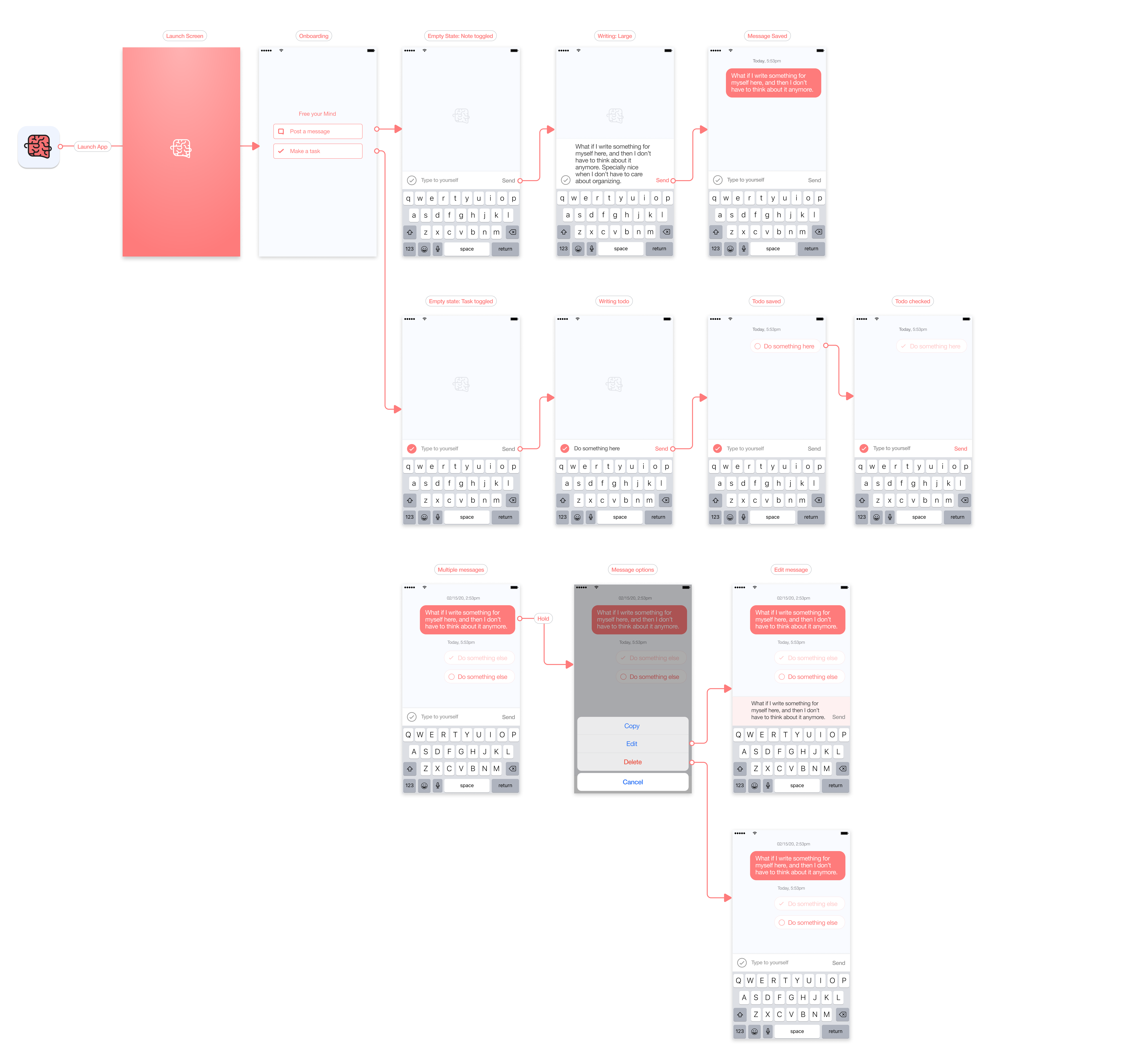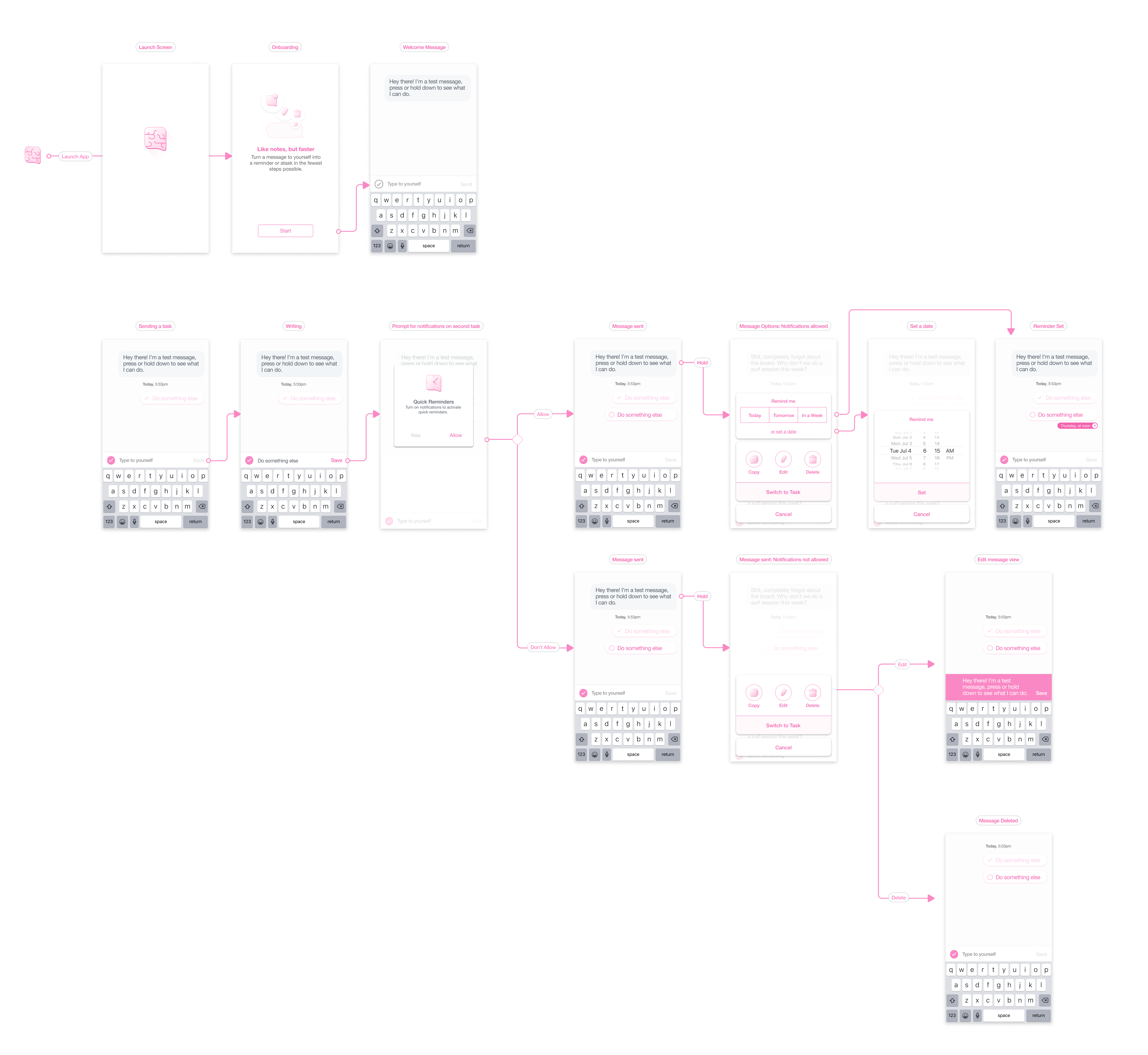
After clearly annoying my partner enough and missing many emails to myself I realized how much I wanted to formalize the conversation with myself. So I made an app for it. Turns out many of my friends liked to do the same.


"It's not what it is, but why I'm using it." Answering that question is a fundamental task to any user-centered designer. Mindchat was so simple, it was actually difficult for some people to know why they would use it just by looking at it. After a bit of user testing, I found that adding a screen to the beginning that showed and triggered the two possible actions was enough to get the point across. That and a simple delete, and editing on hold allowed the app to fit the simplest part of the use-case; a quick way to write a note.
But, It's not a reminder if you forget to open the app. Different than my partner's conversation stream, or my email inbox, it was missing the second factor, an assurance that I would look at it.

Remind me: Today, Tomorrow, In a Week. Or you could always set a day. This part was less encouraged but necessary. Users could now open the app, write the task, send, and if wanted, tell it—quickly—when to remind you. From my research, these trivial tasks lacked the urgency to need an exact day. They needed the equivalent of saying "sometime soon" for an interface.
Thus, we have the messenger for myself. A simple reminder that takes less time than it would to text a friend.